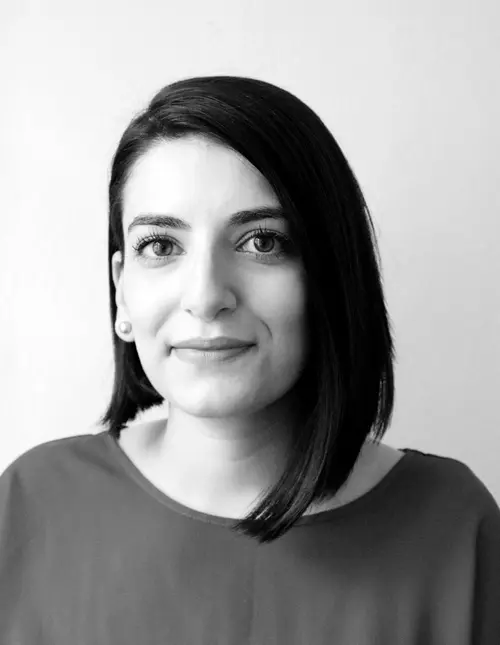
Elif Sari
DOCTORAL CANDIDATE
______________________________________________________________________
Office: Wilhelmsplatz 3, Room: WP3/02.14A, 96047 Bamberg, Germany
______________________________________________________________________
E-Mail: elif.sari(at)uni-bamberg.de
______________________________________________________________________
Pillar 2: Education and Social Inequality Across the Entire Life Course
Field: Sociology
Research Interests: Social Inequality, Educational Research, Parental Practices, Cultural Capital, Mixed Methods Research
______________________________________________________________________
// DISSERTATION PROJECT
Parental Practices in Secondary Education: Supporting, Coaching, Guiding - How Parents Influence the Educational Path and the Educational Success of their Children - a Mixed Methods Project
Regarding the sociology of educational inequality in Germany, researchers have paid little attention to the conscious and unconscious forms of parental support and counseling in everyday life. Little is known about how parental practices differ along the social background, what they look like in detail, and what impact they have on the educational path. Mixed methods studies with a focus on parental practices do not exist at all. However, international research shows that parental practices in this educational stage can explain a significant part of social inequality in the educational system.
Building on this research gap, the research interest of this mixed methods study is to explore how parents, who are endowed differently with social, economic, and cultural capital, influence the educational path and educational success of their children through everyday practices. The theoretical framework of the study is formed by the works of Pierre Bourdieu. According to Bourdieu, depending on the social background and the availability of capital, children are socialized differently, experience different practices, and ultimately have different opportunities to benefit from their parents' capital. By shedding light on this research subject, the project contributes to finding out to what extent parental practices may be mechanisms of social inequality in Germany.
To answer the questions about the different forms of practices and their effects on performance (grades) quantitatively, data from the starting cohort of fifth-graders from the German National Educational Panel Study (NEPS) is analyzed in the first phase. In order to complement the quantitative research and reconstruct causal connections, interviews with young adults were conducted in the second phase. As these 26-year-old young adults and their parents were former participants in the BiKSplus[8-18] study, there is a wealth of information available about them that can also be considered in the analysis. This enables the establishment of stronger connections between qualitative and quantitative data, thus providing a more nuanced and longitudinal understanding of parental practices in Germany.
In the final phase, the results from both research parts are brought together. This approach allows identifying, quantifying and describing precisely types of parental practices as well as analyzing the role of parental practices in the explanation of social inequality.
........................................................................................................................................................
// ACADEMIC BACKGROUND
2016 - 2020
Master's degree in Sociology, Heidelberg University (Thesis: "Parental practices in secondary education: Through which forms of counseling and support parents influence the educational path and educational success of their children")
2013 - 2016
Bachelor's degree in Sociology, Heidelberg University (Thesis: "Studying or not? The educational opportunities of the 2nd and 3rd generation of immigrants at the transition to higher education. An explorative study with persons with Turkish and Italian migration background")
........................................................................................................................................................
// EXPERIENCE
Academic Experience
06/2020 - ongoing
Research Assistant and doctoral candidate in the department Educational Decisions and Processes, Migration, Returns to Education, LIfBi Bamberg
04/2018 - 09/2018
Student assistant at the Max Weber Institute for Sociology (Heidelberg University) in cooperation with Heidelberg University Hospital: Risk assessment of mental stress
02/2017 - 05/2018
Student assistant at the Max Weber Institute for Sociology (Heidelberg University): Assistance in the DFG projects "Determinants of partnering in middle and older adulthood" and "The macrostructural framework of the partner market in longitudinal section" of the chair “Methods of Empirical Social Research and for Social Demography and Social Stratification”
Non-academic experience
08/2019 - 09/2019
Internship at the Federal Ministry of Education and Research (BMBF) in the division "Equal Opportunities and Diversity in Science and Research"
10/2018 - 06/2019
Internship and working student at the Office for Urban Development and Statistics of the City of Heidelberg (units Citizen Participation and Urban Social Development)
Teaching Experience
10/2015 - 03/2017
Tutor for the course "Introduction to Sociology" of the Max Weber Institute for Sociology (Heidelberg University)
........................................................................................................................................................
MAIN PAGE | CONTACT | LEGAL | PRIVACY POLICY | DATENSCHUTZ | IMPRESSUM
© Bamberg Graduate School of Social Sciences
Image Credits: © Bamberg Graduate School of Social Sciences